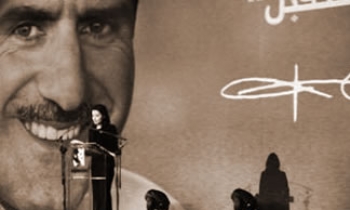MIAMI Leaders of the Inter American Press Association (IAPA) insisted Saturday that the press freedom group will meet next year in Venezuela -- and they essentially dared President Hugo Chavez to stop them.
IAPA officials say that in the past months, several hotels in Caracas, Maracaibo, and the resort Margarita Island have agreed to be the venue for the mid-year meeting scheduled for next March -- and all have withdrawn their offers, giving the same excuses.
IAPA will meet in Venezuela even if the expected 300 delegates have to stay in the homes of journalists and assemble in local schools, association leaders declared at a press conference at the Intercontinental Hotel in Miami. IAPA’s annual General Assembly kicks off formally in Miami on Sunday.
The only way that IAPA will not meet is if the Chavez government moves “legally” to prevent the meeting by, for example, denying visas to members, said association President Rafael Molina, director of the daily El Dia in the Dominican Republic.
“The main reason behind this press conference is to insist we are not going to cease our efforts to meet in Venezuela,” Molina said.
IAPA has clashed with the Chavez government repeatedly during the Bolivarian president’s administration. It accuses the government of systematically repressing the media and free speech. IAPA has sent nine “study missions” to Venezuela during Chavez’s terms -- and every time high-level government officials have snubbed the group.
IAPA sees Chavez’s hand behind the hotel problem as well. IAPA Executive Director Julio Munoz said the owner of the hotel in Maracaibo that made and then withdrew an offer to host the meeting told him the hotel “would be confiscated if the meeting” were held there.
IAPA officials would not discuss contingency plans to meet in any other nation if the logistics of gathering in Venezuela proved impossible. They also dodged questions about whether they had set a deadline for deciding whether or not to go ahead with a Venezuelan meeting.
“What we will not permit is for IAPA not to have its mid-year meeting,” said Gonzalo Marroquin, editor of the Guatemala City daily La Prensa, and head of IAPA’s commission on free press and expression.
This was the first time that a democratic nation has tried to prevent the group from meeting in its country, Marroquin said. IAPA First Vice President Earl Maucker, editor of the Sun-Sentinel in Fort Lauderdale, Fla., noted that Cuba has repeatedly rejected overtures to host an IAPA meeting. But at least, he noted, Cuban government officials have discussed the issue with IAPA representatives.









